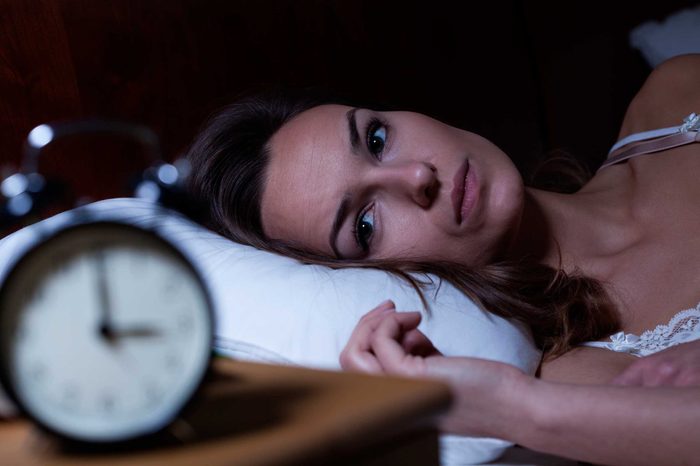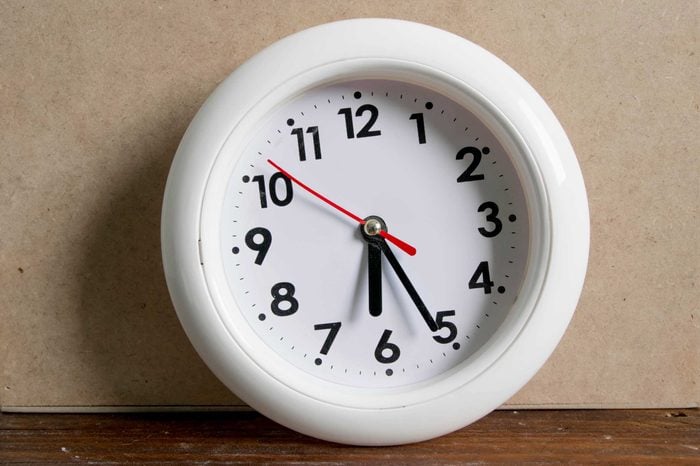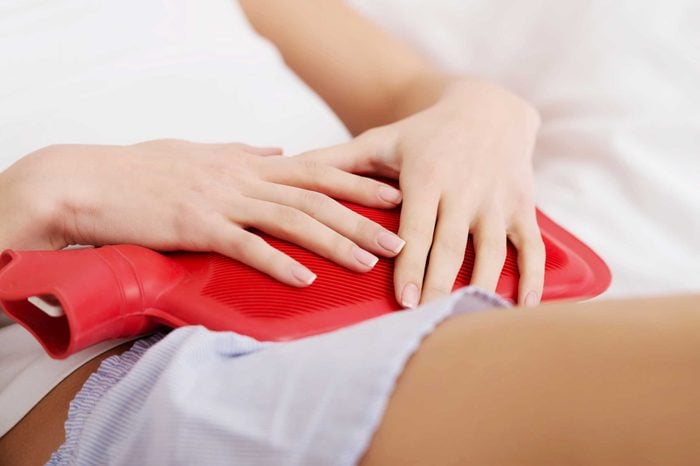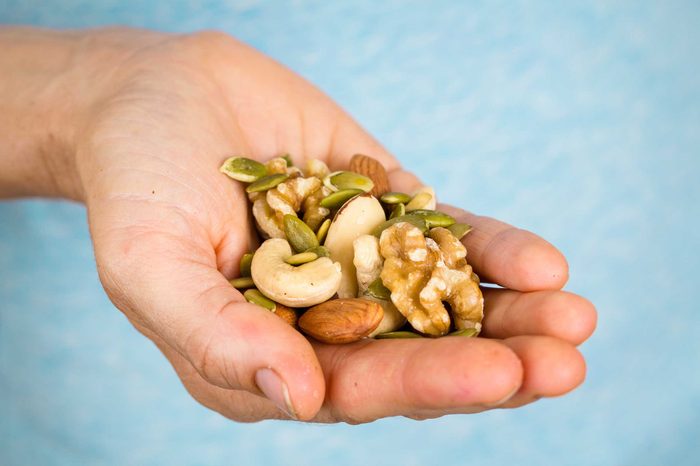
What is menstrual insomnia?
According to the National Sleep Foundation, some women toss and turn during the days leading up to their period and the first few days of their cycle. Not only is it harder for them to fall asleep, but the quality of their sleep declines, too. In fact, women also hit the REM sleep phase for less time in the premenstrual phase than they do during other times. REM is the deepest and most restorative sleep stage, which could explain why women feel so groggy when they have PMS. Read more about the 4 sleep stages and why they matter.

So what’s going on when you have menstrual insomnia?
Bloating, backaches, breast tenderness, and other PMS pains could all make it tough to fall asleep, but that’s just the tip of the iceberg,. After ovulation, your body starts building up progesterone, which makes you drowsy. A few days before your period, though, progesterone spikes back down, which could be why the worst sleep tends to come with PMS. Plus, your core body temperature could be about a half to a degree higher during these days than the rest of the month, so when you hit the sack, you might feel uncomfortably hot and restless. Luckily, there are some ways to work with your body to get a good night’s sleep. Don’t miss these other 9 things your period wants to tell you.

Make sleep a priority
“Sleep should be considered as much of an important factor as things like diet, stress, exercise, and smoking,” says Margaret Moline, PhD, former head of the sleep center at Weill Cornell Medical College in New York, NY. Unfortunately, most of us don’t realize how pivotal sleep is to our health, particularly during our monthly cycles. Being alert by the time you’re headed to work in the morning is part of your body’s natural rhythm, Moline explains. If you’re falling asleep during your commute instead, it means you’re not getting the sleep your body needs. Check out these 8 signs that you don’t get enough deep sleep.

Keep track of your sleep
“The first step against insomnia is to develop a sleep log,” says Moline. That way, you can tell whether there’s a link between menstrual-cycle symptoms and sleep, between relationships and sleep, between work and sleep, between hormone fluctuations and sleep—in fact, between anything and sleep. These are the main things your sleep habits can tell you about yourself.

Plan ahead
If your sleep log reveals that you have insomnia every month at the same time, you could ask your doctor to prescribe a sleeping pill, says Kathryn Lee, PhD, a professor emerita and sleep researcher at the University of California, in San Francisco, CA. Then take the medication proactively on the two or three nights when you know you won’t sleep. Or, try these tips to naturally sleep better without drugs.

Adjust your pill times
On the other hand, if you’re already taking another medication that has drowsiness as a side effect, ask your doctor if you can take that drug an hour before bed instead of whenever you’ve been taking it. A side effect like drowsiness can work against you during the day, but you can use it to your advantage at night.

Make a sleep schedule
The National Sleep Foundation suggests sticking to a sleep schedule that has you waking up and going to bed at the same time every day—yes, even when your period makes you feel like spending the day in bed—which will also increase your ability to fall asleep. Don’t fall for these 22 sleep mistakes that keep you up at night.

Consider oral contraceptives
A study in the journal Sleep Science suggests that the progesterone levels in oral contraceptives may ease insomnia, net you deeper sleep, and regulate sleeping patterns. Discuss the possibility of switching to oral contraceptives with your doctor if this sounds like something you want to try. Be aware of these signs you’re on the wrong birth control pill.

Watch out for wild cards
“Some women may have other conditions that worsen during their cycle,” says Moline, and any associated sleepiness may become exaggerated, possibly because of changes in blood volume. When blood volume increases, your blood levels of medication may drop outside the therapeutic window. Again, keeping a log of your symptoms—including those related to your condition—will help identify the problem. And once you share the information with your doctor, you’re only a step away from a solution. Here’s how to tell if you get the period flu.

Don’t put up with twitchy legs
See your doctor if you are bothered by tingly or creepy-crawly legs. Women with heavy periods seem to be predisposed to restless legs syndrome (RLS), according to Mayo Clinic experts, but this irritating condition can be treated. A blood test will help your doctor determine how much extra iron and folate your body requires during your period to keep your legs calm. Meanwhile, give these 8 RLS home remedies a try.

Kill the pain
If pelvic pain keeps you up during your period, talk to your doctor about over-the-counter NSAIDs (non-steroidal anti-inflammatory drugs) like ibuprofen. It’s one of the 7 treatments for period pain.

Frisk your OTCs
Try to avoid over-the-counter drugs that contain caffeine or added antihistamines, suggests Lee, because they can interfere with your sleep or cause you to have a hungover feeling the next day. Discover more secrets sleep doctors want you to know.

Pay attention to basics
Increase the likelihood you’ll sleep by creating a restful environment. Make your sleep area a comfortable, dark place in which you feel safe. Keep soothing teas and herbal hot packs on hand. Try these bedroom setups that help you sleep.

Stick with just a nibble
It’s no secret that hormones during your period can bring on a serious case of the munchies. Just remember that eating heavily right before bed could leave you wide awake with an overly full belly. If you’re hungry close to bedtime, stick with just a bite or two of something light, like a few nuts. These are the best foods to eat during your period.

Channel your thoughts
Focus on things you love, like the flowers you might plant in the garden next spring or memories of taking your kids to see the ocean for the first time. Avoid stressful thoughts. Trying to work out problems right now will only leave you wide-eyed and anxious.